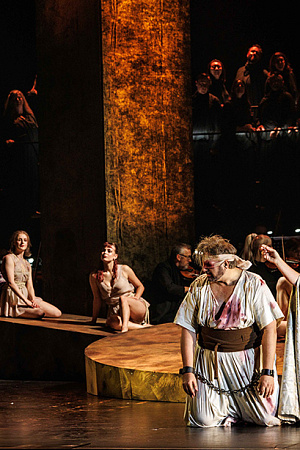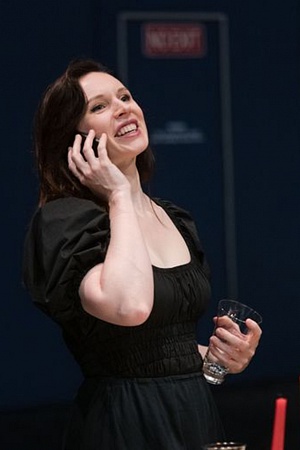Summer of the Seventeenth Doll
It gives some indication of the relative youth of Australian theatre that Ray Lawler, author of the watershed 1955 play Summer of the Seventeenth Doll (‘The Doll’ for short), is still alive. Ninety-nine years old, he apparently even had a hand in this production, just the second staging of Richard Mills and Peter Goldsworthy’s largely faithful operatic adaptation. Premièred by Opera Victoria in 1996, then remounted by Opera Australia two years later, the opera has not been performed since. It has now been dusted off, with minor changes made by composer–conductor Mills, by State Opera South Australia as part of its three-year ‘Lost Operas of Oz’ project. It’s a mark of Anglo-Australian culture’s immaturity, too, that it remains restless and amnesiac, almost wilfully ignorant of the past in its perpetual quest for the ‘next big thing’.
Well, either that or these ‘lost’ operas really are deserving of their fate, justly forgotten forays into a highly particular, quintessentially European tradition not easily assimilated into Australian cultural modes. Lyndon Terracini, artistic director of Opera Australia since 2009, maintains that, of the more than 160 operas commissioned by the Australia Council since 1973, none has entered the repertoire. Perhaps, but it seems to me that the hunt for some elusive ‘Great Australian Opera’ is a misguided and perhaps quixotic project. I doubt that we would recognise any opera thusly even were it to come along, such is the straitened nature of the cultural discourse in Australia today. Terracini’s claim also elides the fact that the most interesting operas being made in this country, by companies like Pinchgut and Chamber Made, are generally occurring on the fringes rather than in the mainstream. Finally, I think, it makes us especially unforgiving of operas that, while unlikely ever to be canonised, are nevertheless important or at least intriguing.
Continue reading for only $10 per month. Subscribe and gain full access to Australian Book Review. Already a subscriber? Sign in. If you need assistance, feel free to contact us.











Comments (5)
Leave a comment
If you are an ABR subscriber, you will need to sign in to post a comment.
If you have forgotten your sign in details, or if you receive an error message when trying to submit your comment, please email your comment (and the name of the article to which it relates) to ABR Comments. We will review your comment and, subject to approval, we will post it under your name.
Please note that all comments must be approved by ABR and comply with our Terms & Conditions.